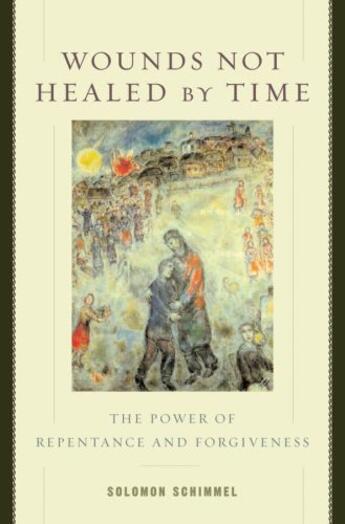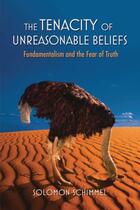-
Nombre de pages : (-)
-
Collection :
(-)
-
Genre :
(-)
-
Thème :
Non attribué
-
Prix littéraire(s) :
(-)
Résumé:
How should we respond to injuries done to us and to the hurts that we inflict on others? In this thoughtful book, Wounds Not Healed By Time, Solomon Schimmel guides us through the meanings of justice, forgiveness, repentance, and reconciliation. In doing so, he probes to the core of the human... Voir plus
How should we respond to injuries done to us and to the hurts that we inflict on others? In this thoughtful book, Wounds Not Healed By Time, Solomon Schimmel guides us through the meanings of justice, forgiveness, repentance, and reconciliation. In doing so, he probes to the core of the human encounter with evil, drawing on religious traditions, psychology, philosophy, and the personal experiences of both perpetrators and of victims.
Christianity, Judaism and Islam call for forgiveness and repentance in our relations with others. Yet, as Schimmel points out, there are significant differences between them as to when and whom to forgive. Is forgiving always more moral than refusing to forgive? Is it ever immoral to forgive? When is repentance a pre-condition for forgiveness, and what does repentance entail? Schimmel explores these questions in diverse contexts, ranging from conflicts in a marriage and personal slights we experience every day to enormous crimes such as the Holocaust. He applies insights on forgiveness and repentance to the Middle East, post-apartheid South Africa, inter-religious relationships, and the criminal justice system.
In Wounds Not Healed By Time, Schimmel also provides practical strategies to help us forgive and repent, preparing the way for healing and reconciliation between individuals and groups. "It is my belief," Schimmel concludes, "that the best balm for the resentment, rage, guilt, and shame engendered by human evil lies in finding the proper balance between justice, repentance, and forgiveness."
Donner votre avis















